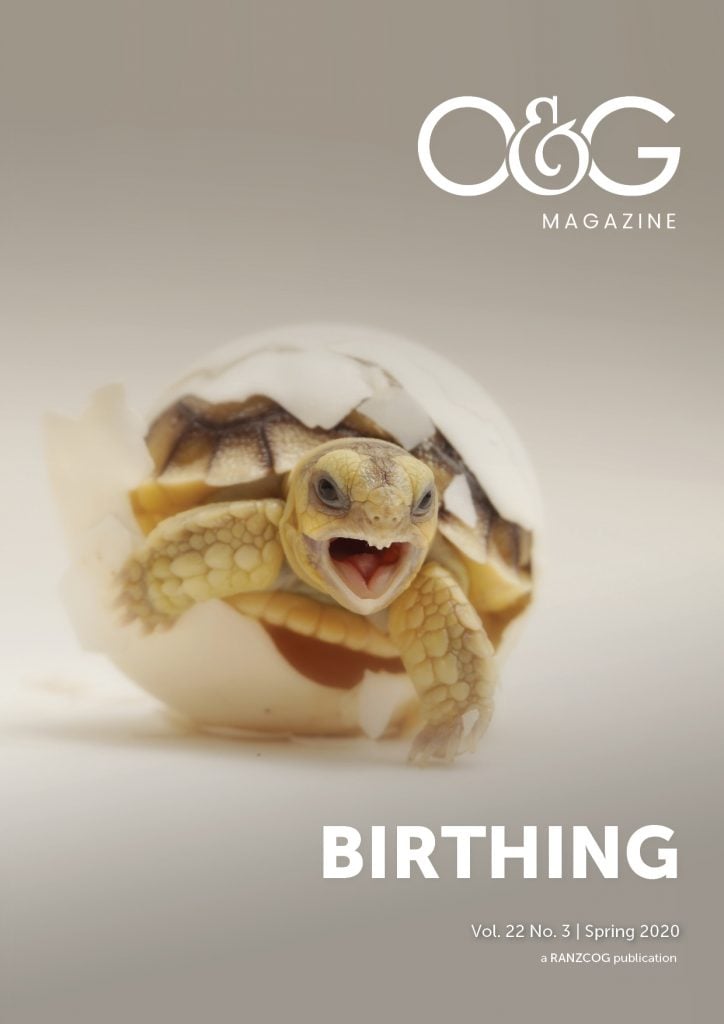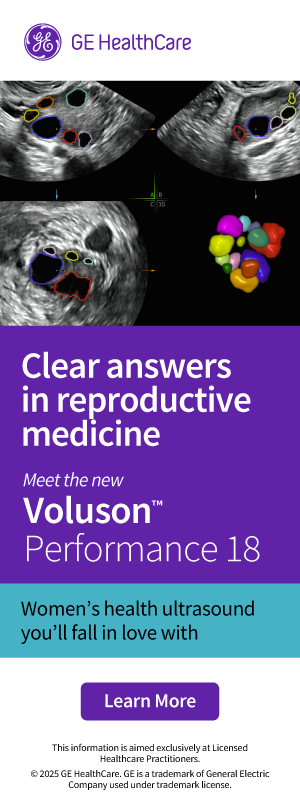There are many quotes about birth that focus on the arrival of the baby. Certainly, the wonder of new life captivates our imagination, evokes feelings of nurturing, love and hope for a unique being. Those involved in maternity care – midwives, doulas, doctors and birth attendants – share, in my opinion, an even greater privilege: the care of pregnant women. We are gifted with the opportunity to share their journey during pregnancy, birth and beyond. A pregnant woman is the 24-hour life support system for another human being, an extraordinary responsibility. That she places her trust in us to walk alongside her, to guide her and ensure her safety, and that of her baby, is humbling. This issue of O&G Magazine focuses on the many medical conditions that can potentially complicate birth, their investigation and management. For most women, the physical experience of birth is uncomplicated, but vigilance is always required and specific circumstances require medical intervention. Specialist and GP obstetricians carry the responsibility to understand the physiology and pathophysiology of the birth process. That is our primary remit and the authors in this issue discuss monitoring, cardiac disease, birth after caesarean section and emergency scenarios. The importance of cultural sensitivity is also explored.
Pregnancy and birth in 2020 is different. Women are older, obesity rates are higher, with associated morbidity, maternal expectations of a ‘normal’ outcome for themselves, and their babies, is almost absolute. Meeting those expectations places doctors under enormous pressure. Balancing the importance of supporting women’s rights to experience the birth that they desire, and delivering a ‘perfect’ outcome, has meant increased intervention. The merits, or otherwise, of increased rates of monitoring, induction and caesarean section require careful, evidence-based evaluation and avoidance of an ideological, reactive debate. There is greater recognition that the birth experience, with intervention, and even without, can be traumatic for some. The need to inform women, about options and potential outcomes, is a more contemporary legal, ethical and social prerogative.
Birth is more than a physical process and it behoves us to remember that birth is also an emotional and spiritual experience. American Professor of Sociology, Barbara Katz Rothman, expresses it beautifully ‘Birth is not only about making babies. Birth is about making mothers – strong, competent, capable mothers who trust themselves and know their inner strength.’
The COVID-19 pandemic continues to have a devastating impact on our community, our members and our patients. At the time of writing, Victoria is experiencing a full lockdown and cases are rising in NSW. New Zealand, after enduring lockdown and apparently eliminating the disease, may be experiencing a new outbreak. Apart from the obvious economic and social impacts, for healthcare workers there is genuine physical risk and the psychological pressure is enormous. Our trainees are experiencing significant hardship with reduced access to surgery and other teaching opportunities, uncertainty about exams, assessments and progress through training. The College has endeavoured to maintain a high level of communication with those affected. I want to acknowledge the RANZCOG staff who have been working from home since March. Their work ethic, commitment and adaptation to a new and difficult work environment has been exemplary.
The College hosted a Hand-n-Hand Wellbeing Webinar with psychiatrists Dr Kym Jenkins and Prof Brett McDermott, Chair of the RANZCOG Wellbeing Working Group, Dr Paul Howat and Deputy Chair, Dr Katrina Calvert and RANZCOG CEO, Vase Jovanoska. We discussed the psychological impact of the pandemic on all of us, the importance of connecting with each other, the value of kindness and compassion and the need to replenish our happiness ‘bucket’. At a time when we’re all feeling rather low, when it’s hard to see an end to the illness, the restrictions and the economic hardship, one hour of reflection, honesty and validation really made a difference. I’ll end on that note, sending a message of gratitude to all of you. Thank you for the support that you have given me, our College, our staff and our trainees. At this time, RANZCOG has clearly demonstrated leadership, advocacy and authority in women’s health, a reflection on you, your professionalism and the care that you provide to women in Australia, New Zealand and beyond.






Leave a Reply